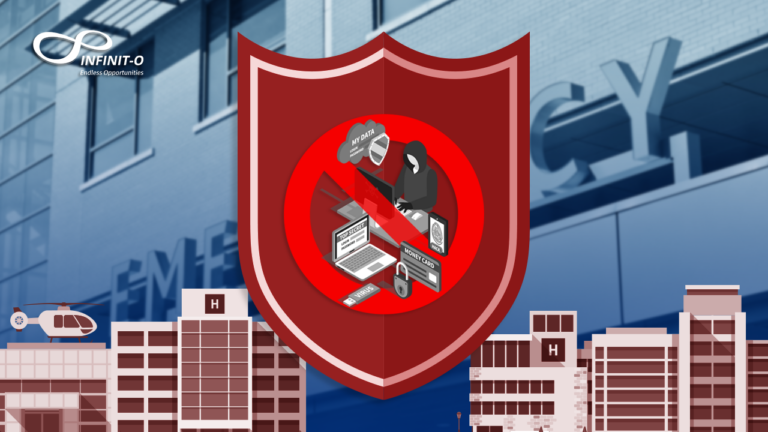Benefits of Automation in Healthcare Through Outsourcing
In today’s dynamic healthcare landscape, the trend toward Automation is becoming increasingly evident. According to a 2020 survey, there was a significant shift in this direction: 90 percent of large healthcare organizations had an AI and Automation strategy, compared to only 53 percent in 2019. Notably, awareness of specific technologies like Robotic Process Automation (RPA) also increased, with 66 percent of respondents reporting familiarity in 2020, up from 50 percent the year before.
The need to enhance efficiency while delivering superior patient care is more pressing than ever. This goal becomes increasingly attainable through the strategic application of healthcare Business Process Outsourcing (BPO) services and cutting-edge Intelligent Automation (IA) solutions. Utilizing these tools can drive transformative change, paving the way toward clinical excellence, cost-effectiveness, and improved patient satisfaction. The statistics underscore the shift towards these innovative practices, highlighting the role of Automation and outsourcing in shaping the future of healthcare.
Moreover, for scaling healthcare organizations, the incorporation of Automation and Business Intelligence (BI) isn’t just an operational improvement, but also a strategic advantage. These tools allow for data-driven decision-making and enhanced operational efficiency, thereby advancing their brands in a competitive marketplace.
Genuine Automation in the Healthcare Sector
As we embark on the journey toward healthcare modernization, a critical checkpoint is the comprehension of genuine Automation. Navigating through an assortment of vendor offerings, it is essential to differentiate between truly business process Automation services and mere marketing rhetoric.
Genuine business process Automation solutions in healthcare translate into processes that commence, operate, and conclude without the need for constant human attention. Whether it’s scheduling patient appointments, managing waitlists, or other administrative tasks, truly automated solutions should perform independently, thereby refining healthcare efficiency.
A prime example of this is the use of Robotic Process Automation (RPA) and AI technologies. The intelligent use of these technologies has the capability to automate healthcare services, improving process efficiency and reducing the potential for human error. This includes tasks such as retrieving patient data, processing insurance claims, or even maintaining patient records. By utilizing RPA, routine tasks can be automated, leaving healthcare professionals free to focus on more complex and patient-centered tasks.
These technologies, if correctly implemented and managed, offer a path to genuine Automation, setting a standard for true modernization in the healthcare sector.
Strategic Task Prioritization for Automation

The canvas of Automation in healthcare is vast, providing opportunities for enhancement in numerous areas ranging from administration to clinical care. Identifying the optimal tasks for Automation is a crucial part of this process.
Tasks that are typically time-consuming, prone to human error, or where the effort-to-benefit ratio is skewed should be prioritized for Automation. By refining such tasks, clinicians can devote more time to patient care, thereby improving patient outcomes.
The Revolutionary Advantages of Business Automation Services
The alliance of Healthcare BPO services and business Automation solutions can significantly restructure healthcare operations, leading to multiple benefits.
1. Transforming Appointment Management
Scheduling is a critical component of patient care and can often be plagued by conflicts and complexities. The adoption of business Automation solutions can greatly enhance this process, providing a smooth and error-free experience. Self-scheduling platforms and advanced reminder systems can provide flexibility and timely notifications, significantly improving the patient experience.
2. Financial Efficiency through Operational Streamlining
Automation in healthcare can result in a substantial reduction of operational costs. It achieves this by enhancing overall efficiency and reducing errors, thereby eliminating the need for extensive overtime. Moreover, using sophisticated scheduling software simplifies rules and guidelines, reducing onboarding and training expenses.
3. Reinforced Data Security and Accessibility
Implementing business Automation solutions can drastically improve data transfer and accessibility, allowing seamless sharing of patient data across various departments and facilities. These solutions also ensure strict compliance with HIPAA and TCPA security standards, thus safeguarding sensitive patient data.
4. Proactive Adaptation to Emergencies
Automated solutions equipped with machine learning (ML) capabilities can dynamically manage staffing levels in response to sudden fluctuations in patient volume. Such adaptability proves to be highly beneficial during emergencies or widespread disease outbreaks, such as the COVID-19 pandemic.
5. Building a Culture of Patient Satisfaction
A multitude of factors influences patient satisfaction, including the ease of scheduling, check-in procedures, and overall appointment time. By integrating Automation into healthcare processes, medical facilities can significantly enhance the patient experience, leading to heightened satisfaction levels.
6. Upholding Patient Data Privacy
Automation solutions offer secure case management, ensuring that only authorized personnel can access protected health information (PHI). Such tools play an instrumental role in reinforcing HIPAA compliance.
7. Quicker, Efficient Patient Scheduling
Innovative automated scheduling solutions empower patients to book appointments online anytime, facilitating a faster and more efficient scheduling process, thereby boosting the patient experience.
Employment Opportunities in the Age of Automation

Although Automation may spur concerns regarding job scarcity, it is essential to approach this aspect with a balanced perspective. Automation in healthcare can allow staff to focus more on clinically relevant tasks, enhancing their expertise. Studies show that fully automated solutions can actually improve staff satisfaction, reinforcing the idea that Automation does not necessarily lead to staff reduction.
Concluding Thoughts
Embracing business process Automation and BPOs, offering cutting-edge business Automation services, can usher healthcare organizations into a new era of efficiency and effectiveness. By carefully selecting the tasks for Automation and implementing comprehensive, genuine Automation solutions offered by healthcare BPO services, healthcare providers can significantly improve patient care while simultaneously achieving cost efficiencies and operational enhancements.
Infinit-O partners with the world’s fastest-growing technology, financial, and healthcare services companies that want to scale and advance their brands. Demonstrated by our world-class Net Promoter Score of 71, we deliver the highest quality outsourcing services using our unique data-driven approach – combining powerful technology and high-performance teams within our highly-engaged and agile culture. Our expertise includes CX, engineering, data science & analytics, sales & marketing, and back office services.
Looking to take your healthcare services to new heights? Connect with us today for customized solutions crafted to align with your specific requirements!







This site is protected by reCAPTCHA and the Google Privacy Policy and Terms of Service apply.